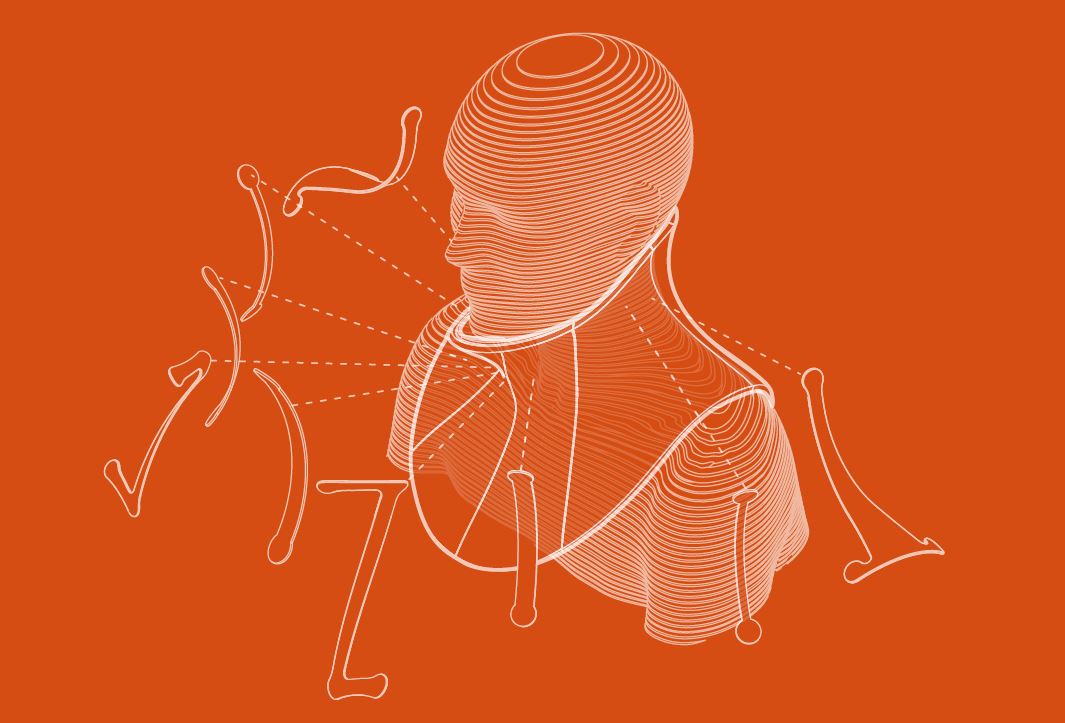The Sheffield Support Snood: The development of a novel cervical orthosis to support neck weakness due to neurological disease
Many people with neurological conditions develop neck muscle weakness, leading to pain and restricted movement, as well as problems with swallowing, breathing and communication. The Sheffield Support Snood helps to alleviate these problems.
Project Lead and Organisation
Dr Chris McDermott, Sheffield Institute for Translational Neuroscience (SITraN), University of Sheffield
When did project start?
2011
Clinical Requirement
There are around 5000 people in the UK living with motor neurone disease (MND)/Amyotrophic Lateral Sclerosis (ALS). Current practice and guidelines for care of patients with MND/ALS recommend the use of neck orthoses to compensate for neck weakness and to provide support. A review of the available orthoses described discomfort and restriction for patients, and concluded that there was a need for a new device that fully addressed the needs of people with MND/ALS.
The Solution
The need for this project came directly from users and carers. The project was initially proposed by a Clinical Studies Group for Motor Neuron Disease (MND), with support from carers and patients, who approached Devices for Dignity (D4D) with the view that the current cervical orthoses are inadequate in terms of function and comfort.
A collaborative project between D4D, the University of Sheffield, the Motor Neuron Disease Association (MNDA) charity and Sheffield Hallam University obtained NIHR i4i funding to work in collaboration with patients, carers, designers, physiotherapists and a consultant neurologist to develop a new orthotic collar. The project has developed a CE marked class 1 medical device, the Sheffield Support Snood, which is currently being trialled with 150 patients with neck weakness as a result of their neurological condition across 10 sites in the UK and Ireland.
D4D has taken the lead role with regard to project management and clinical trial management to ensure the project delivers against its objectives, as well as the regulatory arrangements through to the granting of the CE mark. It is through D4D’s Core Team that the study was able to re-open on the NIHR CRN Portfolio. In parallel to this activity, D4D has also been active in managing the IP aspects of this device and in exploring the most suitable business/manufacturing partners to ensure this product is licenced with a suitable return on investment to the NHS while offering the product to patients at an affordable price.
Impact
Whilst the cervical orthosis developed as a result of this project uses MND as a case condition, it will also benefit individuals with weakness of the neck muscles due to other diseases, such as stroke, myopathy, dystonia and multiple sclerosis. In addition to the 5000 people in the UK living with MND/ALS, there is also an estimated 100,000 people living with multiple sclerosis and 250,000 people living with the effects of stroke.
Having spoken with a number of healthcare professionals, it is clear that there is a need in the cervical orthoses market for a collar that provides support, without restricting movement, which is exactly what the Sheffield Support Snood offers. Having completed a successful pilot study on 20 patients, the team have gone on to conduct a full Clinical Evaluation in 150 patients with MND and other conditions whereby patients suffer neck muscle weakness. Early feedback that we have received from patients and carers has been extremely positive and encouraging:
“No comparison to other collars – it works”
“This collar gives support but also freedom of movement – I can wear it to drive.”
“My head is better positioned therefore do not feel as tired as before having the head resting on my chest.”
“[This collar] has helped me to enjoy shopping again because my head is up.”
Partners
- NIHR HTC Devices for Dignity (D4D)
- Sheffield Teaching Hospitals NHS Foundation Trust
- Sheffield Hallam University
- The University of Sheffield
- Barnsley Hospital NHS Foundation Trust
- Motor Neurone Disease Association (MNDA)
- NIHR Invention for Innovation (i4i)
- National Institute for Health Research (NIHR)
Publications
- Baxter, S et al. (2016) Evaluating a novel cervical orthosis, the Sheffield Support Snood, in patients with amyotrophic lateral sclerosis/motor neuron disease with neck weakness. Amyotrophic Lateral Sclerosis and Frontotemporal Degeneration, 1-7.
- Pancani, S. et al. (2015). Assessment of the Sheffield Support Snood, an innovative cervical orthosis designed for people affected by neck weakness. Clinical Biomechanice, 32, 201-206.
- Heath, R. et al. (2015). Head up: an interdisciplinary, participatory and co-design process informing the development of a novel neck support for people living with progressive neck muscle weakness. Journal of Medical Engineering & Technology, 39 (7), 404-410.
Patents:
Patent Filings: patent applications covering the configuration and design approach have been filed as follows:
- GB2516725 (B1) granted 29th September 2015, published 28th October 2015
- US2016074202 (A1) published 17th March 2016 claiming priority 9th May 2013
- EP2994077 (A1) published 16th March 2016 claiming priority 9th May 2013
- Patents are pending in the US and Europe.




